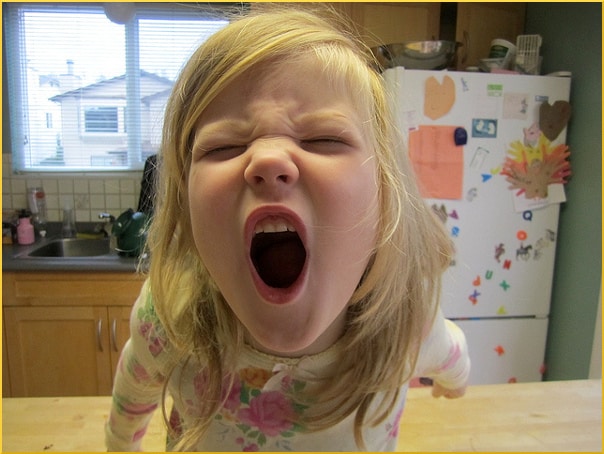
Who wants to stop mindless eating, recreational eating, palliative eating, and other forms of weirdness? We all do, of course — in our kids. And we all know, deep in our hearts, where our children picked up their bad habits. We know that we need to cure ourselves of these habits in order to set a good example. It’s up to us to take the lead and do the course correction.
In reading or listening to experts’ suggestions on how to better ourselves we might not even grasp exactly why a certain behavior is counterproductive. If the discretionary time is available, we can peruse the studies and grasp all the ins and outs of the reasoning. Or we can take people’s word for it, whether they are academics or merely interested friends. Cautiously approaching or plunging in, we can try something new.
The upside is, the very great majority of suggestions made by professionals can do no harm, so even ideas that sound wacky are worth trying, because why not? A parent might ask himself, “Would it be so bad if there wasn’t a single snack on the premises?” There is no downside to giving that experiment a four-week test run. As always, everything comes with a disclaimer. Because all families, kids, and situations are different not every hint or tip can help everybody.
Out with the old, in with the new
But sometimes we simply need to intellectually and behaviorally clean house, and get rid of old mental and emotional baggage that weighs us down and keep us in a rut. There are therapists who recommend crazy stuff like wearing shoes on the wrong feet for half an hour, just for the hell of it, or writing a page with the wrong hand. The retraining of neural pathways is a concept that crops up over and over again in unexpected places.
Doing something different, every now and then, is super healthful because it can shake things up and jar things loose. The mind, as we know, is deep and tricky. Sometimes, losing an old habit or forming a new one has the strange effect of bouncing around in there and setting off an unexpected reaction that seems totally unrelated, but that turns out to be beneficial. Don’t be afraid to try something new.
More and more and more advice
We have consulted the writings of registered dietitian Maryann Jacobsen before, and with good reason. She is all about mindful eating and many other useful concepts including “5 Times You Never Want To Feed Your Kids (And Why).”
Briefly, the important times not to feed kids are:
- To alleviate boredom;
- To distract from uncomfortable feelings
- To reward behavior
- During screen time
- And in a moving vehicle.
But don’t take our word for it. Please see the article for important details.
Jacobsen also presents “10 Golden Rules for Exposing Kids to Food” and, again, we recommend the entire piece, which is packed with useful ideas. In outline form, the rules that parents are urged to apply in regard to their kids are:
- No food jags.
- Try not to serve the same thing two days in a row.
- Be strategic.
- Eat family style.
- Don’t be too fussy about how they eat (dissecting a casserole to eat each component separately, for instance).
- Focus on sensory properties.
- Keep a positive, expectant attitude.
- Include them in the preparation.
- Create a relaxing and enjoyable atmosphere.
- Don’t give up.
Halloween is coming!
By the way, it’s not too late to do some really tight Halloween prep this year. Please check out Childhood Obesity News‘ extensive collection of Halloween ideas.
Your responses and feedback are welcome!
Source: “5 Times You Never Want To Feed Your Kids (And Why),” MaryannJacobsen.com, 05/01/09
Source: “The 10 Golden Rules For Exposing Kids To Food (Part 5),” MaryannJacobsen.com, 11/22/13
Photo credit: AmberStrocel on Visualhunt/CC BY-ND

 FAQs and Media Requests:
FAQs and Media Requests: 











